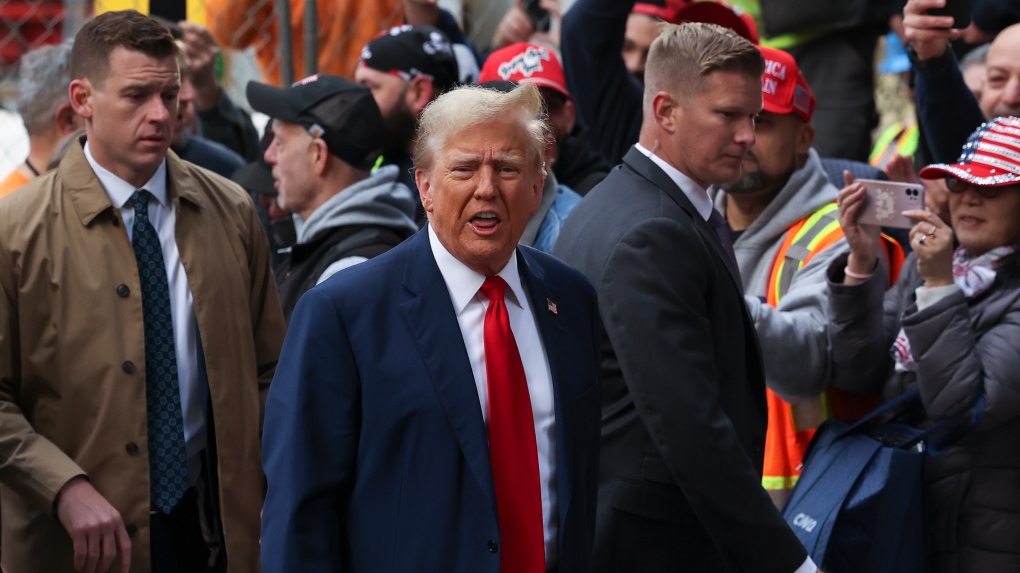
Ex-tabloid publisher testifies he scooped up possibly damaging tales to shield his old friend Trump
CTV
As Donald Trump was running for president in 2016, his old friend at the National Enquirer was scooping up potentially damaging stories about the candidate and paying out tens of thousands of dollars to keep them from the public eye.
As Donald Trump was running for president in 2016, his old friend at the National Enquirer was scooping up potentially damaging stories about the candidate and paying out tens of thousands of dollars to keep them from the public eye.
But when it came to the seamy claims by porn performer Stormy Daniels, David Pecker, the tabloid's longtime publisher, said he put his foot down.
"I am not paying for this story," he told jurors Thursday at Trump's hush money trial, recounting his version of a conversation with Trump's former lawyer Michael Cohen about the catch-and-kill scheme that prosecutors alleged amounted to interference in the race. Pecker was already US$180,000 in the hole on other Trump-related stories by the time Daniels came along, at which point, he said, "I didn't want to be involved in this."
Pecker's testimony was a critical building block for the prosecution's theory that their partnership was a way to illegally influence the 2016 presidential election. The Manhattan district attorney is seeking to elevate the gravity of the history-making first trial of a former American president and the first of four criminal cases against Trump to reach a jury.
Trump's lawyers also began their cross-examination of Pecker, using the time to question his memory of years-old events and to suggest his account had evolved over time.
But the hush money trial was just one of the consequential legal matters facing the Republican presidential candidate on Thursday.
The U.S. Supreme Court also heard arguments over whether Trump should be immune from criminal prosecution while he was the president, stemming from federal charges over his efforts to reverse his 2020 election loss to Joe Biden. The high court justices appeared likely to reject his claims of absolute immunity, though it seemed very possible that trial could be delayed beyond November's election.
